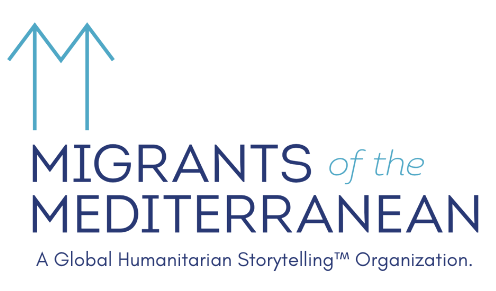Meet Yankuba
Yankuba (Gambia) in Frosinone, Italy. 16 April 2022. ©Pamela Kerpius/Migrants of the Mediterranean
by
Pamela Kerpius
Recorded:
16 April 2022
Published:
1 October 2022
Meet Yankuba.
24 years old and from Dippa Kunda, Gambia.
To reach Italy he crossed six countries: The Gambia, Senegal, Mali, Burkina Faso, Niger and Libya.
Yankuba, or Yanks for short, left The Gambia on 10 February 2016, first taking a ferry across the water to Senegal, then, to a car that took him and six others to Tambacounda, a large city in the eastern side of the country.
It was six hours from Dakar to Tambacounda, where he transferred to a bus, traveling on it for two weeks before reaching Bamako, Mali. He traveled by bus for the remaining duration across Burkina Faso and until he Agadez, Niger. He remained in Agadez for one month, hidden in a compound with 24 people, using money to buy food, water and coffee when he ventured outside.
“It was so congested,” Yankuba said about the pickup truck that transported him and 25 others across the Sahara desert. There were tanks of water to drink from during the crossing that took one-and-a-half days. Those tanks did not run out, but others he encountered in the desert had different luck. He found people left behind in the desert and couldn’t help but share his water supply with them. “They look like they will die. [They’re] wasting,” he said. It was a gesture that enraged his traffickers; they beat him with a stick for breaking the rules.
“What am I to do?” Yankuba continued, “They are my fellow human beings. I feel it.” He said crossing the desert was “horrible, very hard. Only God can help people cross it.
Gadron was the first city he arrived in in Libya, but it was only a hours-long stop before going forward further to Sabha, Libya. He stayed in Sabha for one month and two days. It was a small compound, a connection point that had a few mattresses the floor, where he and four others slept. Checkpoints were scattered throughout the city where migrants would be stopped to pay bribes. Sometimes they’d be taken. Yankuba spend a night in captivity. He was beaten throughout the night, but in the end they freed him.
““What am I to do?...They are my fellow
human beings. I feel it.””
He moved onward to Tripoli, Libya’s capital city on the coast. He remained in the city limits for one month in a connection house that held over 300 people. The conditions were poor, including the water quality. There was only salty tap water available onsite, but he was able to leave during the day to work and bought bottled water on his own.
It was a huge “white house*,” he says, where he stayed in Sabratha, the coastal camp, after departing Tripoli. He stayed for one month. Sometimes there was food and water, but not always, and there would sometimes be whole days when he didn’t eat at all.
On 6 November 2016, Yankuba crossed the Mediterranean Sea in a rubber dinghy with 120 people, including 10 women and three children. It was 2:00 a.m. when he pushed off the shores of Libya. Some time into the trip the boat sprang a leak. Some people panicked, so the captain operating the boat’s motor turned back. It was then that traffickers stopped them, cutting the engine from the inflatable vessel and leaving them to float aimless on the open water. He called for emergency on the GPS phone that was aboard saying they were desperate and lost. Traffickers sent a speedboat and by morning they were all pulled on board by a rope. It was 10:00 a.m. on 7 November 2016 when he and the other passengers arrived again at the Libyan seaside.
He was wading the the shallows of the water. Another boat was being inflated, but this time there was no engine attached. They had no compass. “Go straight,” his traffickers told them as they pushed into the Mediterranean Sea, the second time in as many days, with not another word of direction.
At sea, they spotted a fishing boat. The fisherman checked their compass and redirected them toward international waters. There, as Yankuba remembers, a brown and white ship appeared, a German vessel.
“They rescued my life. I’ll never forget that,” Yankuba said. He was onboard for 12 hours while the crew made additional rescue efforts. He spend the night on the ship until he landed in the southern region of Calabria, Italy on 8 November 2016 at 7:00 p.m.
He is 30 years of age now and living in Frosinone, Italy, where we recorded this story on 16 April 2022.
Yankuba is an amazing human being.
*The “white house” is a location many have named during their time in Sabratha, Libya, as a prominent spot that may or may not be an abandoned structure from the Gaddafi years.

